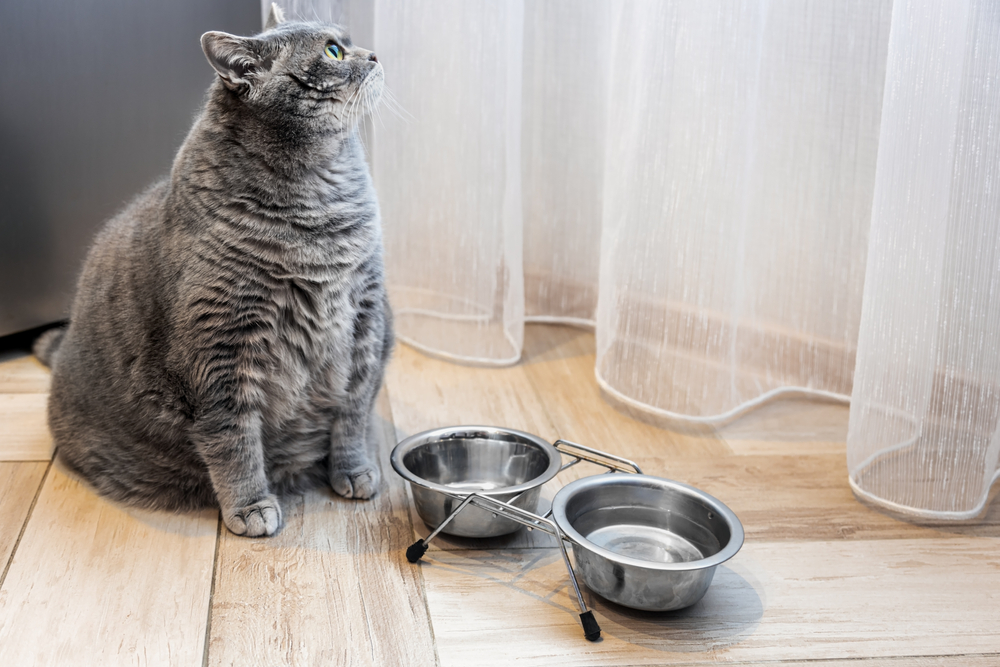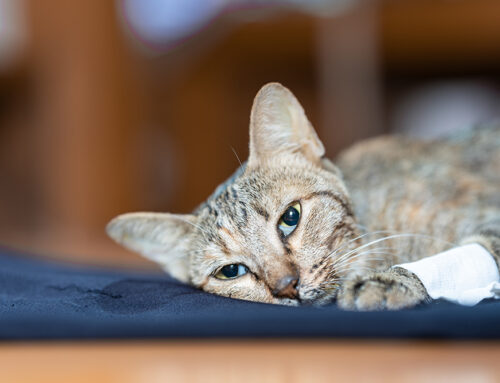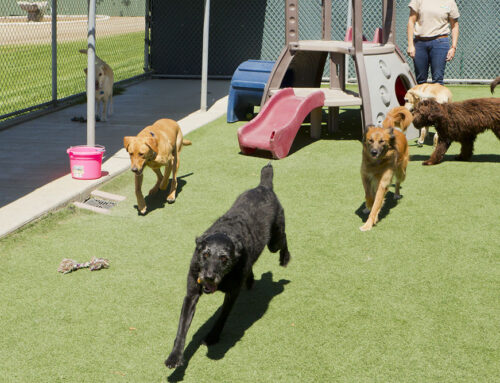Pet nutrition is surrounded by myths and misconceptions, leaving many pet owners confused about what to feed their furry companions. As a responsible pet owner, you must be able to separate fact from fiction to ensure your pet receives the nourishment they need for a healthy and happy life. Our Animal Clinic of Council Bluffs team debunks some pervasive myths that surround nutrition for cats and dogs to empower you to make informed decisions about your pet’s diet.
Myth: Raw diets are the most natural food for pets
Truth: One of the most hotly debated topics in the nutrition world of dogs and cats is the efficacy of raw diets. Proponents argue that such diets mirror the natural diet of wild ancestors and provide superior nutrition.
Raw diets can offer benefits such as shinier coats and healthier skin, but they also come with significant risks. Raw meat can contain harmful bacteria like Salmonella and E. coli, which can pose serious health risks to pets and people. Additionally, raw diets may lack essential nutrients if not properly balanced, leading to deficiencies over time. When raw diets are formulated by a veterinary nutritionist and prepared using stringent hygiene measures, they can be safe, but the drawbacks often outweigh the benefits.
Myth: Grain-free diets are best for pets
Truth: In recent years, grain-free diets have surged in popularity, with many pet owners believing that grains can harm their pets. However, this myth is based on misconceptions rather than scientific evidence.
Grains such as corn, wheat, and rice are not inherently bad for pets and, in fact, provide valuable nutrients, such as carbohydrates, fiber, and essential vitamins and minerals. The concern with some grain-free diets lies in the use of alternative carbohydrate sources, such as peas, lentils, and potatoes, which may be linked to an increased risk of heart disease in dogs.
The key to selecting the right diet for your pet is to focus on overall nutritional balance rather than fixating on specific ingredients. Look for diets formulated to meet the Association of American Feed Control Officials (AAFCO) guidelines and consult with your Animal Clinic of Council Bluffs veterinarian to determine the best option for your pet’s individual needs.
Myth: Cats need to drink milk to thrive
Truth: For generations, the image of a contented cat lapping up a saucer of milk has been ingrained in popular culture. However, the notion that milk is a universally suitable beverage for cats is more myth than reality.
While many cats enjoy the taste of milk, especially as kittens, the reality is that most adult cats are lactose intolerant. Like some people, cats lack sufficient amounts of lactase, the enzyme needed to digest lactose, the sugar found in milk. As a result, consuming dairy products can lead to digestive upset, including diarrhea, gas, and stomach discomfort.
Myth: Table scraps are safe for pets
Truth: Many pet owners are guilty of slipping their furry friends a few table scraps now and then, believing it’s a harmless indulgence. However, feeding pets human food can be risky and lead to various health problems.
Foods that are safe for people, including chocolate, onions, garlic, and grapes, and any foods containing xylitol, may be toxic to pets. Feeding table scraps can also contribute to obesity and nutritional imbalances, as human foods are often high in fat, salt, and sugar.
Myth: Dry food is better for dental health
Truth: Another common myth is that dry kibble helps to promote better dental health by reducing plaque and tartar buildup. While dry food may have some abrasive action on the teeth, its effectiveness in preventing dental disease is limited.
The reality is that dental health is influenced more by factors such as genetics, overall diet, and dental care practices, such as regular at-home toothbrushing, dental treats, and regular veterinary cleanings, than the food type consumed.
Myth: Feeding less will help pets lose weight

Truth: Many pet owners mistakenly believe that restricting their pet’s food intake is the key to weight loss. While reducing calorie intake is essential for weight management, simply feeding less food may not be the most effective approach.
Pets require a balanced diet that provides essential nutrients when on a weight loss plan and feeding too little can lead to nutritional deficiencies and other health issues. Instead, pet owners should focus on feeding their pets a high-quality, portion-controlled diet tailored to their specific weight loss goals.
Navigating the world of pet nutrition can be challenging, especially with the abundance of circulating misinformation. But, when you ignore common myths and rely on evidence-based information, you can make informed decisions about your furry pal’s diet and ensure they receive the nutrition they need to thrive. Consult with our Animal Clinic of Council Bluffs veterinarian for personalized dietary recommendations tailored to your pet’s individual needs.






Leave A Comment